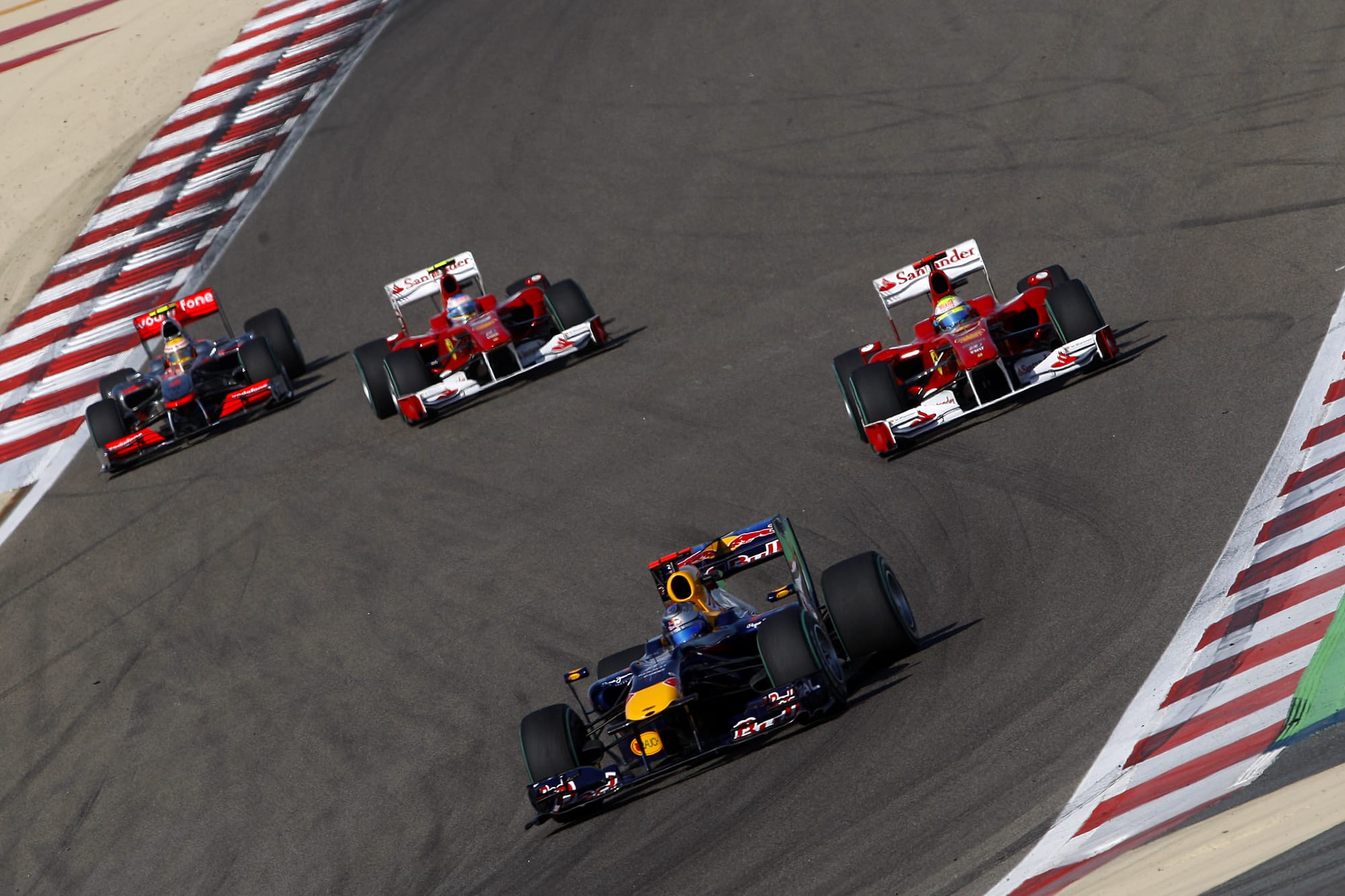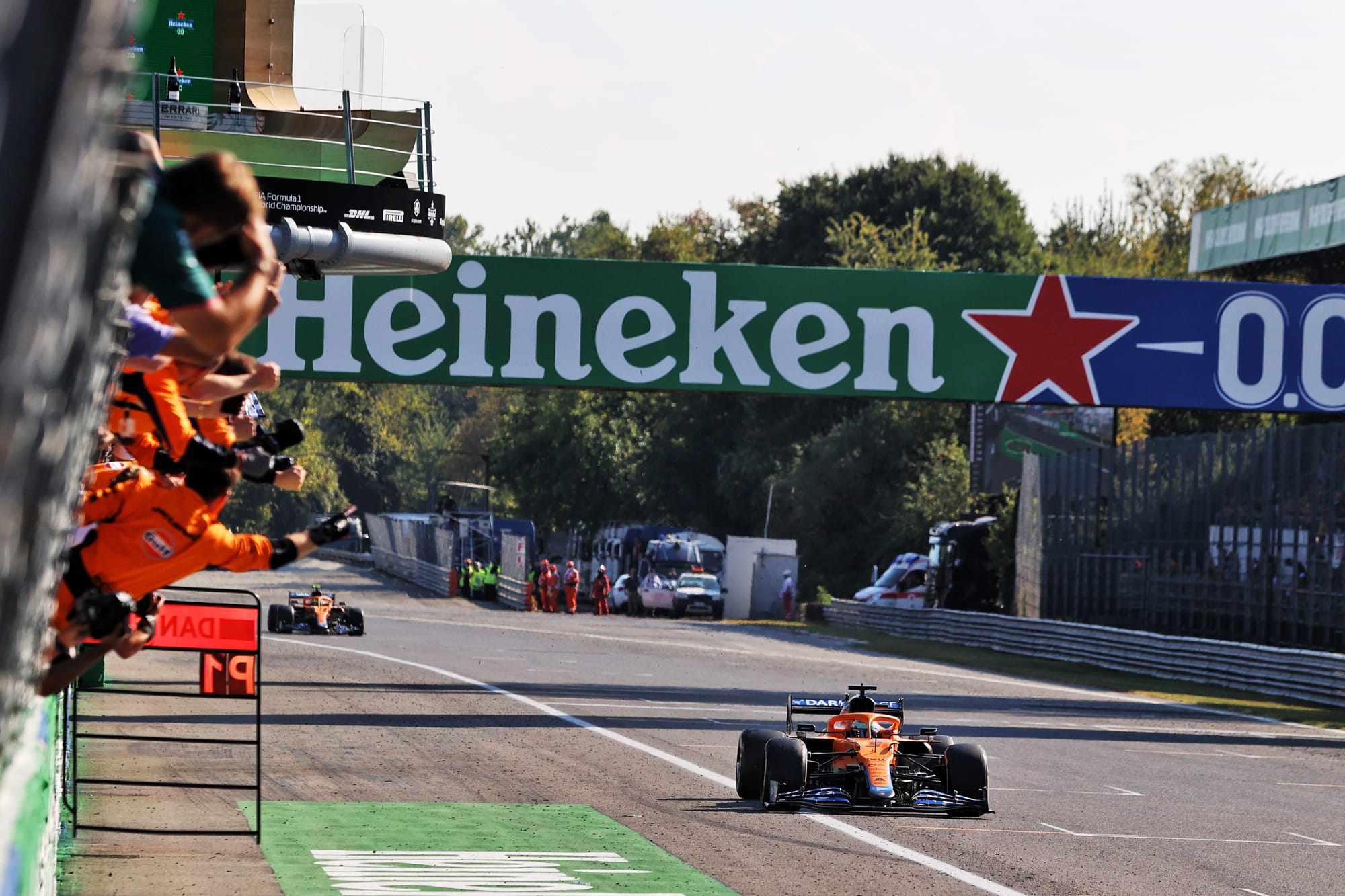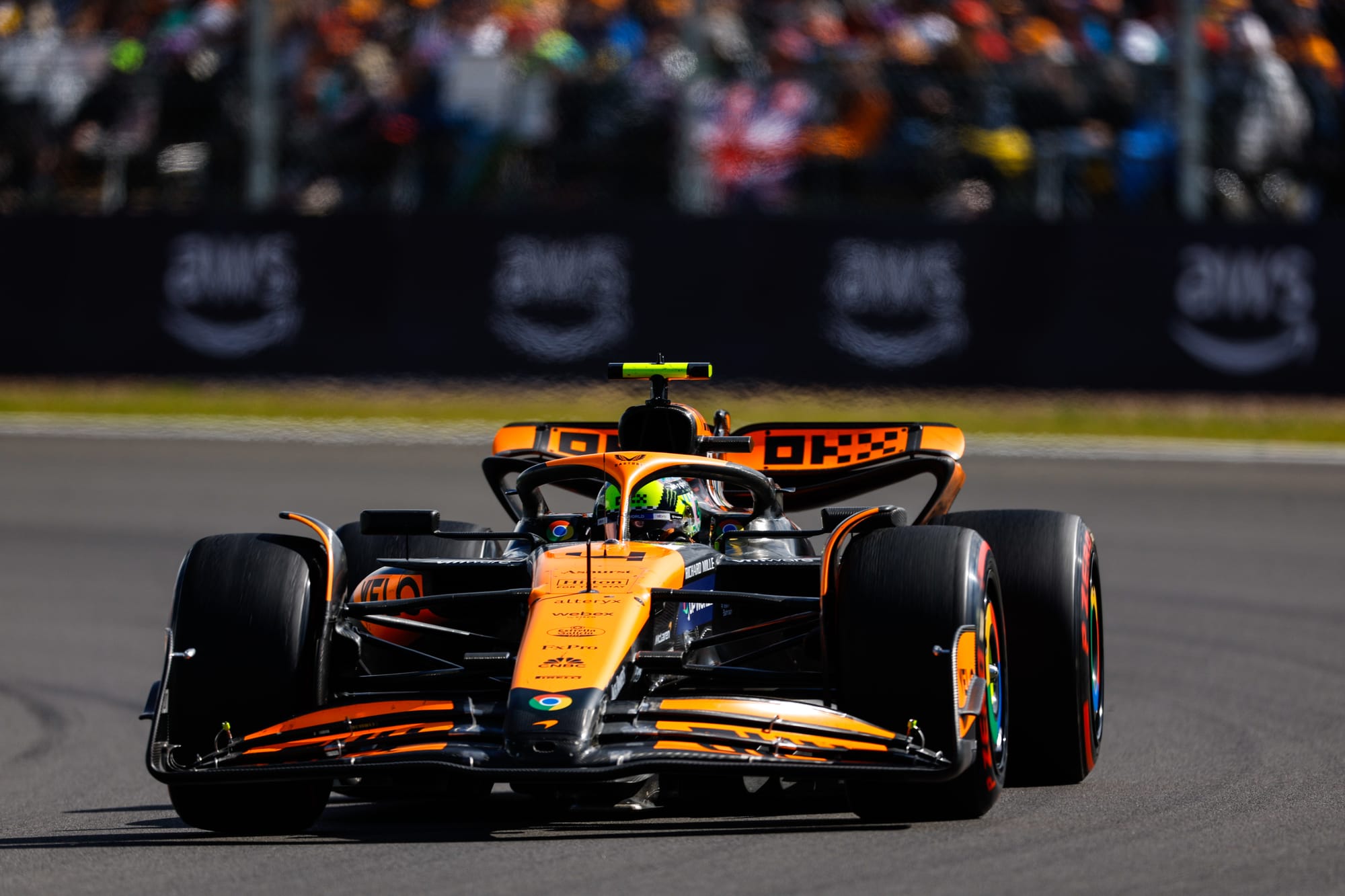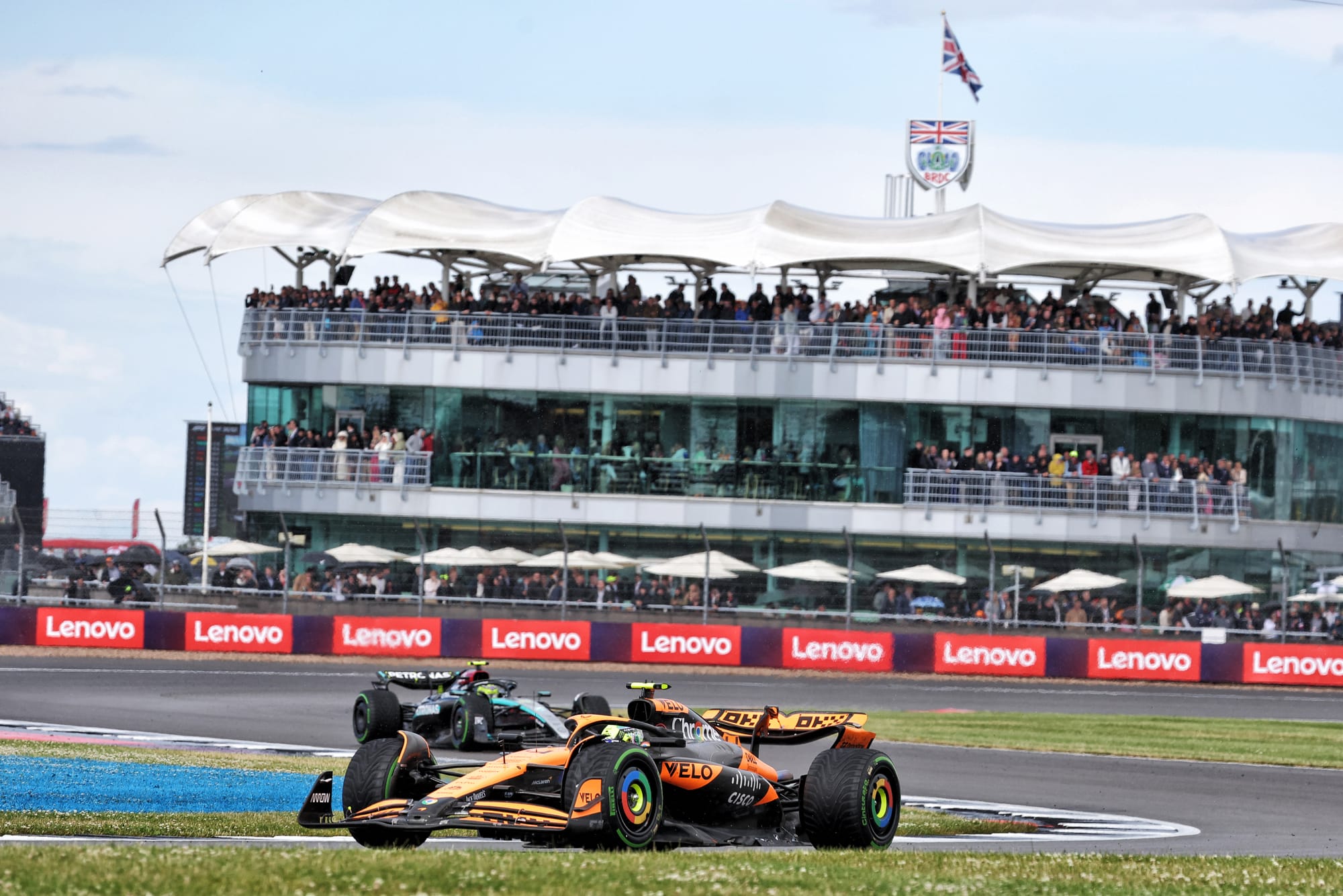[ad_1]
McLaren’s three mistakes at the British Grand Prix added to a frustrating series of strategic errors that have left Lando Norris and the team feeling as though Formula 1 victories will continue to elude them in 2024.
Norris took his inaugural win in Miami, but since then McLaren have narrowly missed out on beating Red Bull and Mercedes at Imola, Montreal, Barcelona, the Red Bull Ring and Silverstone.
Norris’ regret over missing out on a win after the race has become a common theme recently – something he himself admitted at Silverstone: “I’ve heard that a lot recently. [that a win got away]“So I hate to say it again.”
Unsurprisingly, this has led many in the Racing Members Club to question whether McLaren are so error-prone that they are unable to adequately challenge Red Bull.
“I can imagine at least three wrong decisions from McLaren in this race,” asked Stuart Harland. “Are McLaren prepared to fight consistently at the front for the win when you’re competing with the likes of Red Bull who rarely make wrong decisions from Max?”
Responding to The Race F1 Podcast, Mark Hughes said he thought “the speed of their car really revealed that McLaren are not exactly seasoned in the battles. [enough] “Working to keep up with the latest developments regarding strategy calls.”
“I heard this particularly on Sunday through radio conversations between Lando Norris and [race engineer] Will Joseph who had some similarities to Montreal [this year] Also Sochi [in 2021],” he added.
“I think Lando himself and the team need to be more decisive. Maybe the idea of involving the driver in the decision, although it seems nice and equal, is not the most appropriate way to do it in these critical moments when you can’t really expect the driver to have the full picture, especially in the stressful circumstances of trying to keep the car on the road in a wet, dry, wet race.
If you listen to GP [race engineer Gianpiero Lambiase] And Max Verstappen, there’s no ambiguity. GP: “Do you want to stay out for another lap?” Verstappen: “Yes.” GP: “Do you want the hard or the soft?” Verstappen: “The hard.”
“They’re so used to running in front and getting used to feeling those kind of decisions.”
Was this an early comparison with Red Bull?

Ed Straw wondered if there were any similarities between McLaren’s current error rate and Red Bull’s error rate during their first two years of winning races.
“It’s a learning experience. When Red Bull first started winning in 2009 and 2010 [it converted only eight of its 15 pole positions that year, though it did win both titles]”There were a lot of wins left on the table,” Straw said.
“Although McLaren is already a championship-winning team, this is a new version of McLaren.
“They have to relearn this because it has been stagnant for so long.”
This is not unlike the return of fellow frontrunner Mercedes, who, although far from perfect in strategy this year, are only three years away from the last time they were regularly at the front, with largely the same team and structure.

With the exception of Daniel Ricciardo’s fairytale win at Monza in 2021, McLaren has not been consistently challenging for victory since 2012. Very little of that remains in a team that has since introduced brand new facilities, seen changes in team bosses and has a completely different team structure.
It will always take some time to adjust, but it will continue to cost McLaren in such a close battle at the front where decisions like choosing between soft and medium tyres for the final stint of the race can make or break your race.
“My responsibility is 100%”

McLaren team principal Andrea Stella has admitted that McLaren should rely less on its drivers during those difficult moments, as Hughes suggested.
“When checking with Lando, we had some doubt and that led us to follow this direction, which in the end was not correct,” Stella said.
“Please don’t think that the decision to go soft is because of Lando. [said] We have to be more flexible, we have the ability to make the call, we have more information, we have more people.
“So the responsibility to switch to the soft tyres instead of the medium, which would have been a better decision, is on the team – it’s 100% my responsibility in the pit wall.
“The driver gives his point of view. This is a point of view, and in this case, the pits should have made the decision saying, ‘We’re going to use the medium tyres because the soft tyres might not make it to the end.’”
Part of the problem is managing the flow of information – something that speeds up during a rain-affected race.
“There is a lot of information being exchanged behind the scenes. Each team is able to make decisions that could help them win the race if they have the car,” said Samarth Kanal.

“But sometimes they can’t filter that information and present it in the right way. The conversations that are broadcasted may be 10% of what is being said behind the scenes. There is so much conversation and information and analysis that is happening, and it is amazing.
“It was clear, as Andrea Stella pointed out – that they just needed a better way to sort it out.”
McLaren’s ability to find a better way will surely soon be tested in the fierce competition between the various teams in Formula 1 that shows no signs of slowing down.

[ad_2]
Source
